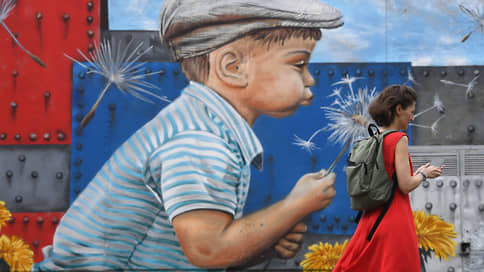Global warming allergies – Kommersant
[ad_1]

This year, the demand for allergists and sales of antihistamines among Russians began a month earlier than usual. The trend was noticed by Sber Eapteka together with the online medical service SberHealth. According to their data, in April 2023, patients visited allergists 56% more often than in April 2022. Now there is already a decline in activity, but the figures are still higher than last year by 21%. Experts explain this not only by the early onset of spring and flowering, but also by the increase in the number of allergic pathologies provoked by COVID-19.
According to SberHealth, this year the demand for online consultations with allergists reached its peak by mid-spring — in April 2023, patients visited allergists 56% more often than in April 2022. A year earlier, the peak was observed closer to mid-May, in the same year, a decline is observed by the end of May, but still the figures are 21% higher than last year. More often, young people aged 25–34 years old (40% of requests), 35–44 years old (35%) and 45–60 years old (12%) needed a consultation with an allergist. It is noteworthy that people under the age of 18 (1% of visits), from 18 to 24 years (6%) and over 60 (6%) consult with allergists much less frequently.
The most common reasons for visits to allergists at SberHealth from March to May 2023 were allergic rhinitis (65% of visits), rhinoconjunctivitis (13%) and urticaria (9%).
Expectedly ahead of schedule – in April – the demand for antihistamines also went up (in 2022, sales peaked in May). According to Sber Eapteki, in the 2023 allergy season (April, May), residents of the country purchased 38% more medicines for allergies than in the same period in 2022. Parenteral antihistamines (e.g. inhalers, plus 47.5% in the category) showed the highest year-over-year growth. Sales of oral products also increased (plus 37.6% in the category). Most often they buy suprastin, loratadine and zirtek.
Kommersant has already said that the volume of sales of antihistamines in April reached 5.5 billion rubles, an increase of 43% year-on-year, in physical terms, the growth was 27%, to 31.2 million packages. Such data was provided by the CRPT (operator of the Chestny Znak marking system). The average cost of a unit sold increased by 12.7% over the year, to 176.1 rubles.
The number of packages of anti-allergic drugs sold in April in the 36.6 pharmacy chain increased by 69% year-on-year. In “Zdravcity” growth was at the level of 50% year-on-year – such an indicator is called unprecedented in the network.
This year, the meteorological spring began much earlier, so the allergic season also started earlier, explains Maria Evsikova, senior medical expert at the SberHealth online medical service. Evgeny Tishkovets, a leading specialist of the Fobos weather center, confirms that this March was two degrees warmer than normal, and the so-called climatic spring (average daily temperature transition through zero) occurred on March 20, a week earlier than expected. In April, the average monthly air temperature in Moscow was plus 9.7 degrees, which exceeded the climatic norm by 2.8 degrees. Warm weather and provoked rapid flowering.
However, it’s not just about warming. According to Maria Evsikova, there is an increase in allergopathology all over the world, a failure in the reaction of the immune system to environmental factors. Lada Popova, an allergist-immunologist at the Doctor Nearby medical technology company, says that experts are recording an increase in the number of allergy sufferers among people who have had coronavirus and influenza. “This year the flu strains have been particularly aggressive. The coronavirus has literally made non-allergic people allergic. Many began to react to pollen and other allergens,” says Popova. Olga Shuppo, scientific director of the network of immunorehabilitation and preventive medicine clinics Grand Clinic, also speaks about the increase in requests from patients who have not previously complained of allergies. She also links the trend to outbreaks of coronavirus and other viral diseases: a weakened body due to an infectious disease is more difficult to cope with exposure to allergens. And allergist-immunologist Vladimir Bolibok, on the contrary, points out the unexpectedly negative effect of the end of the COVID-19 pandemic on allergy sufferers: “When there were strict restrictions, people did not hesitate to wear masks in public places – and the mask effectively protects against pollen. Therefore, in the past three springs, patients were much less likely to have serious manifestations of allergies. This year, everything that we’ve lost the habit of in three years has returned with greater force.”
[ad_2]
Source link








